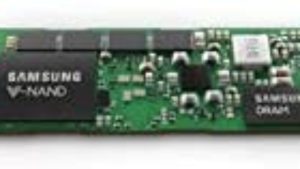Here are some common problems and their solutions:
- Slow performance: If you notice that your SSD is not performing as well as it used to, it could be due to a variety of reasons such as firmware issues, outdated drivers, or a lack of available space. To fix this issue, try updating your SSD’s firmware, installing the latest drivers, and freeing up some space on your drive.
- Overheating: SSDs generate heat during use, but if it gets too hot, it can damage the drive and cause it to fail. To prevent overheating, make sure your computer’s cooling system is working properly, and avoid placing your SSD in direct sunlight or other areas with high temperatures.
- Data loss or corruption: While SSDs are generally more reliable than traditional hard drives, they can still suffer from data loss or corruption. To prevent this, make sure to back up your data regularly, and use a reliable antivirus software to protect your computer from malware.
- Bad sectors: Bad sectors are areas on your SSD that have become damaged and can no longer be used to store data. To fix this issue, you can use a utility program that can mark these bad sectors as unusable and prevent your computer from attempting to write to them in the future.
- Compatibility issues: Some older computer systems may not be compatible with newer SSDs. If you’re experiencing compatibility issues, make sure to check your computer’s specifications and ensure that your SSD is compatible with your system.
I hope these tips help you troubleshoot any issues you may be having with your SSD. If you have any further questions, feel free to ask!
NTFS vs exFAT: Which One Is Right for You?
When it comes to choosing the right file system for your storage devices, the decision between NTFS and exFAT can be confusing. Both file systems have their strengths and weaknesses, depending on the kind of usage and devices. In this comprehensive guide, we will explore the key differences, advantages, and ...
Recognizing the Warning Signs: Symptoms of a Failing SSD
An SSD, or Solid-State Drive, is a type of computer storage device that uses flash memory to store data. Unlike traditional hard disk drives (HDDs), SSDs have no moving mechanical parts, making them faster, more reliable, and more energy-efficient. Recognizing early signs of SSD failure is crucial to prevent data ...
The Impact of SSDs on Boot and Load Times
Solid-state drives (SSDs) have revolutionized the world of computer storage by offering faster and more reliable performance than traditional hard disk drives (HDDs). One of the most significant advantages of SSDs is the impact they have on boot and load times. This article will explore how SSDs can improve boot ...

How to Extend the Life of Your SSD
Solid-state drives (SSDs) have become a popular choice for computer users because of their faster read/write speed, reduced boot time, and better overall performance. However, like any electronic device, SSDs also have a limited lifespan. In this article, we will discuss some simple tips and tricks that can help extend ...
How to Maintain Your SSD: A Comprehensive Guide
Solid-state drives (SSDs) are a popular choice among computer users because they offer faster data transfer speeds and improved system performance compared to traditional hard disk drives (HDDs). However, like any other electronic device, SSDs require proper maintenance to ensure their longevity and optimal performance. In this article, we will ...
Is third-party antivirus needed with Windows 10?
Third-party antivirus is not necessarily needed with Windows 10 since the built-in Defender is considered to be comparable to highly-rated third-party antivirus solutions.